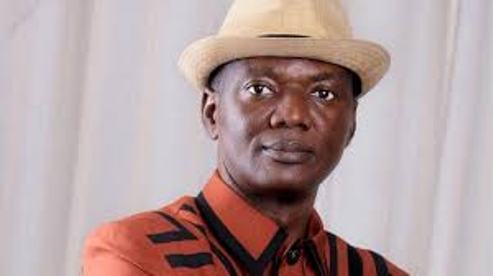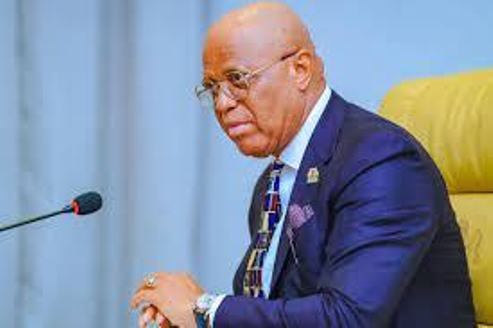http://ift.tt/2v8YRhL
LAGOS JULY 26TH (NEWSRANGERS)- – Nigeria’s upper house of parliament backed a series of constitutional amendments on Wednesday that could weaken the presidency and boost the legislature, the latest twist in a two-year power struggle between the two institutions.
The head of the Senate, Bukola Saraki, who is pushing the changes, said they would help boost Nigeria’s development but a senior official in President Muhammadu Buhari’s government said they amounted to “a very unhealthy” power grab.
Saraki has been tipped as a possible eventual successor to the ailing Buhari, who has spent more time this year in Britain receiving treatment for an undisclosed medical problem than he has in Nigeria. Buhari, 74, is currently again in Britain.
“What we have done today definitely is to lay the foundation for a far-reaching reform of our political, economic and social development,” Saraki said after the Senate vote.
The amendments must still be approved by the lower house and two thirds of Nigeria’s 36 regional state parliaments and then be signed off by the president.
The measures include providing certain legal immunity to members of the legislature, reducing the president’s ability to withhold assent for a bill passed by parliament, and removing law-making powers from the executive.
The Senate also voted to impose time limits on key presidential decisions such as nominating ministers and proposing federal budgets, both of which have been much-delayed under Buhari.
A senior government official, who declined to be named because not authorized to speak to the media on the matter, criticized the Senate’s move.
“The executive sees this development as very unhealthy because laws should be made for the overall interest of the nation and not some people or an arm of government wanting to aggregate more powers to themselves,” the official said.
The lower chamber, the House of Representatives, is due to vote on the proposed amendments on Thursday.
Analysts noted the sensitive timing of the Senate move.
“The amendments do raise the profile of the Senate and their passage at this particular moment, with the president outside the country, although not law without his approval, will be interpreted by some in the political establishment as a bid by the Senate leadership to dilute the executive’s authority,” said Antony Goldman of Nigeria-focused PM Consulting.
Saraki, 54, hails from Buhari’s All Progressives Congress, but he assumed the Senate presidency in 2015 without the party’s support but with the backing of the opposition.
As Senate leader – constitutionally the third most powerful position in the country after the president and vice-president – he has proven a nimble political operator. Despite numerous accusations of misconduct and investigations, none have stuck to him.
Saraki has often been a thorn in the side of the presidency, with parliament repeatedly blocking presidential appointments to key positions.
Nigeria’s state budget both last year and this were only signed into law after many delays, often caused by battles between the parliament and the presidency over the allocation of federal funds to key projects.
Saraki has also criticized Buhari for allowing power to be concentrated among the president’s chief of staff and an inner circle at the presidential villa.
REUTERS
News Rangers http://ift.tt/2w1fnfT
via IFTTT









